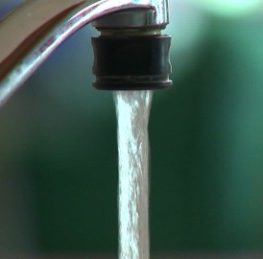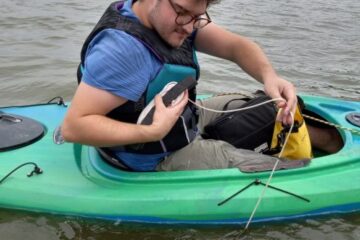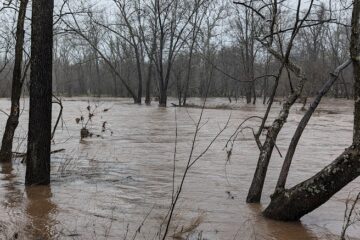 * This event will be rescheduled.
* This event will be rescheduled.
Municipal leaders and the public are invited to learn about lead in drinking water – and what to do if it’s found – during a free workshop on Wednesday, March 25, sponsored by watershed watchdog Raritan Headwaters Association (RHA).
The “Get the Lead Out” workshop will be held at the Bridgewater Township Free Public Library, 1 Vogt Drive, from 3 to 5 p.m. Topics will include health impacts of lead exposure, lead testing and treatment programs for municipalities, and current actions being taken by water purveyors to protect public health. There will also be an overview of the Jersey Water Works Lead in Drinking Water Task Force, of which Raritan Headwaters is a member.
Speakers include Liz Hernandez, environmental health specialist and program coordinator for the Central NJ Lead and Healthy Homes Coalition; Scott Baxter-Green, manager of water quality and environmental compliance for New Jersey American Water Co.; and Mara Tippett, RHA’s watershed scientist and well testing program manager.
“Lead poisoning is a serious hazard, especially for young children,” said Tippett. “This free seminar will provide information on ways to reduce exposure and combat lead contamination of residents’ homes and drinking water supply.”
To register for the workshop, go to the Raritan Headwaters event calendar and click on “Get the Lead Out.” For more information, contact Tippett at welltesting@raritanheadwaters.org or 908-234-1852, ext. 401.
The lead workshop is part of Raritan Headwaters’ ongoing series of “Watershed Tools for Local Leaders” seminars.
Last fall, Raritan Headwaters launched a “Get the Lead Out” campaign to encourage residents in the upper Raritan River watershed region – especially those with older homes – to get their tap water tested for lead.
Lead is a toxic heavy metal once commonly used in pipes and plumbing. Lead contamination of drinking water endangers the health of anyone who drinks it and is especially detrimental to brain development in young children.
In Newark and many other older New Jersey communities, the problem begins with lead service lines, the pipes that connect water mains in streets with individual buildings. But even homes with private wells can be affected if lead was used in pipes, solder, or well components. Houses built before 1986 are most at risk, yet plumbing fixtures with as much as 8 percent lead-by-weight could be legally labelled “lead free” until 2014.
Lead in water is colorless, odorless, and tasteless, so the only way to know if you’re being exposed to lead through drinking water is to test it. “If lead is found, it’s easy to treat,” said Tippett.
About Raritan Headwaters
Raritan Headwaters has been working since 1959 to protect, preserve and improve water quality and other natural resources of the Raritan River headwaters region through science, education, advocacy, land preservation and stewardship. RHA’s 470-square-mile region provides clean drinking water to 300,000 residents of 38 municipalities in Somerset, Hunterdon and Morris counties and beyond to some 1.5 million homes and businesses in New Jersey’s densely populated urban areas.
To learn more about Raritan Headwaters and its programs, please visit www.raritanheadwaters.org or call 908-234-1852.



